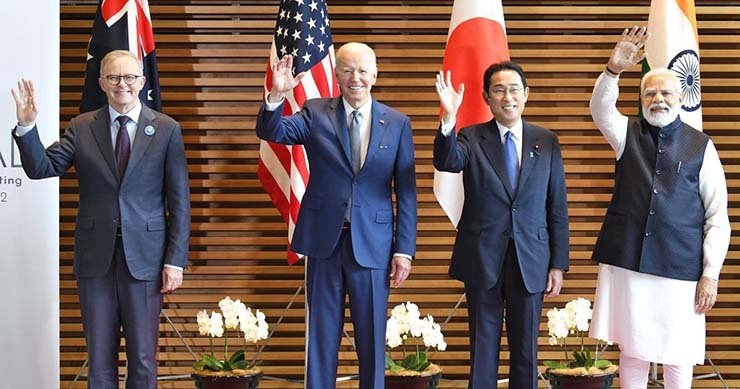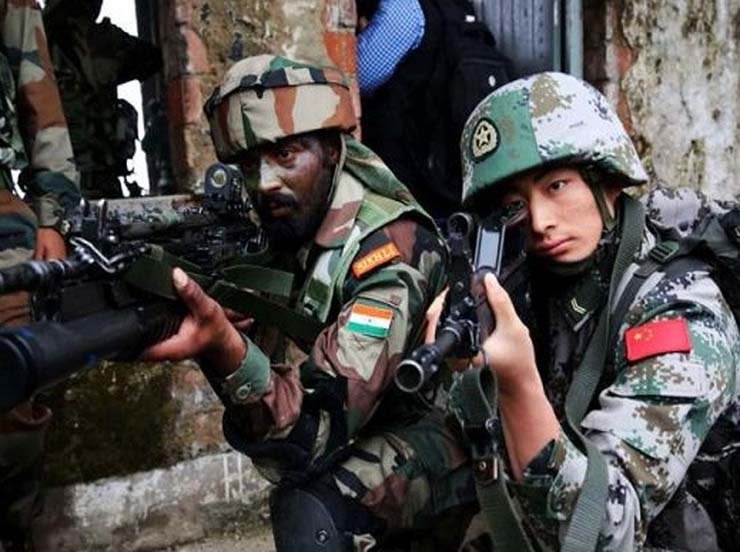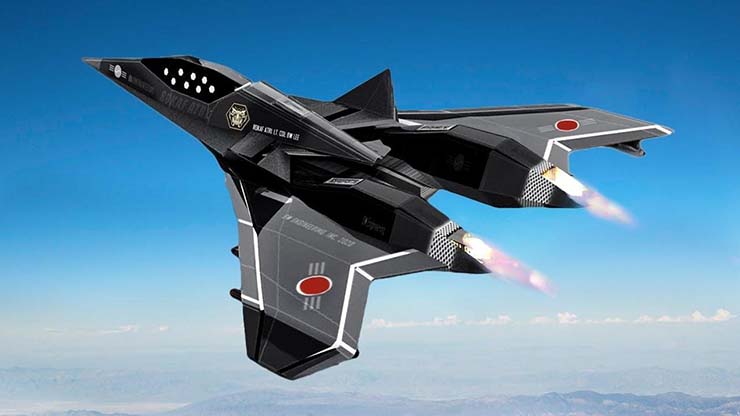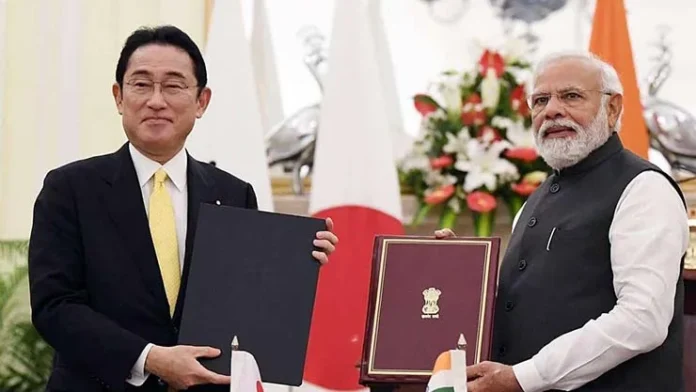Japan is known as the ‘land of the rising sun’. The country has truly risen to its name. We are commemorating 70 years of our diplomatic relations with Japan, with 2022 being a landmark year. Japan and India are natural allies with a great deal of commonality in our political structure, culture and shared values. An exchange between Japan and India is said to have begun in the 6th century when Buddhism was introduced to Japan. Indian culture, filtered through Buddhism, has had a great impact on Japanese culture, and this is the source of the Japanese people’s sense of closeness to India.
Special Strategic and Global Partnership
Ever since the establishment of diplomatic ties, the two countries have enjoyed cordial relations. In the post-World War II period, India’s iron ore helped a great deal in Japan’s recovery from the devastation. Following Japanese Prime Minister Nobusuke Kishi’s visit to India in 1957, Japan started providing yen loans to India in 1958, as the first yen loan aid extended by the Japanese government.
When Prime Minister Manmohan Singh visited Japan in December 2006, the Japan-India relationship was elevated to the ‘Global and Strategic Partnership’. In September 2014, Prime Minister Narendra Modi paid an official visit to Japan and had a summit meeting with Prime Minister Shinzo Abe. They concurred to upgrade the bilateral relationship to ‘Special Strategic and Global Partnership’. Soon after Prime Minister Kishida took over, the two leaders concurred to further develop Japan-India relations and work closely towards the realisation of a ‘Free and Open Indo-Pacific’.
There are also various frameworks of security and defence dialogue between Japan and India including the Foreign and Defence Ministerial Meeting (‘2+2’ meeting), the annual Defence Ministerial Dialogue and the Coast Guard-to-Coast Guard dialogue. In November 2019, the first ‘2+2’ meeting was held in New Delhi.
Economic Cooperation
In recent years, the economic relationship between Japan and India has steadily expanded and deepened. The volume of trade between the two countries has increased. India was the 18th largest trading partner for Japan, and Japan was the 12th largest trading partner for India in 2020. Japanese private-sector’s interest in India is rising, and currently, about 1455 Japanese companies have branches in India. There are also 11 industrial townships set up by Japan in India. The bilateral trade between the two countries today stands at 17 billion US dollars and Japan has the third-largest FDI in India to the tune of 42 billion US dollars in sectors relating to automobiles, electrical, telecommunication, chemical, insurance and pharmaceuticals.

India is the largest recipient of overseas Japanese investment wherein 26 billion US dollars have been flown in. Japan supports the Delhi Metro project, dedicated freight and industrial corridors, and smart city missions in Varanasi, Chennai and Ahmadabad. The 508 km long high-speed rail project between Mumbai and Ahmadabad is ongoing.
The QUAD and Indo-Pacific Connect
India and Japan are members of QUAD and share the same vision. Based on the outcome of the QUAD Leaders’ Meeting, the two leaders concurred to steadily promote practical cooperation in various fields such as Covid vaccines, critical and emerging technologies, climate action, infrastructure coordination, cyber security, space and education to deliver concrete benefits to countries in the region. In light of this, they welcomed the signing of the $100 million loan facility between Japan Bank for International Cooperation (JBIC) and the Export-Import Bank of India as an outcome of the Quad Vaccine Partnership.
Indo-Pacific Oceans Initiative (IPOI) was announced by Prime Minister Modi in 2019. Both the prime ministers acknowledged the growing space for cooperation between the IPOI and Free and Open Indo-Pacific (FOIP). India appreciated Japan’s participation as a lead partner on the connectivity pillar of IPOI and reiterated strong support for ASEAN’s unity and centrality and their full support for the ‘ASEAN Outlook on the Indo-Pacific (AOIP)’, which upholds the principles such as the rule of law, openness, freedom, transparency and inclusiveness.
Both the nations have reaffirmed their determination to continue prioritising the role of international law, particularly the United Nations Convention on the Law of the Sea (UNCLOS), and facilitate collaboration, including in maritime security, to meet challenges against the rules-based maritime order in the East and South China Seas.

Emphasis has been laid upon the importance of non-militarisation and self-restraint. It is, therefore, imperative to accomplish a full and effective implementation of the Declaration on the Conduct of Parties in the South China Sea and the early conclusion of a substantive and effective Code of Conduct in the South China Sea in accordance with international law, especially UNCLOS.
Act East Forum
There is a great significance of collaborative projects between India and Japan in the Indo-Pacific region. The importance of a continued collaboration through the Act East Forum (AEF) for the sustainable economic development of India’s North Eastern Region and for enhancing the Region’s connectivity with Southeast Asia will be of paramount importance. The launch of the ‘India-Japan Initiative for Sustainable Development of the North Eastern Region of India’, which includes ‘Initiative for Strengthening the Bamboo Value Chain in the North East’ and cooperation in health care, forest resources management, connectivity and tourism in different states of the North Eastern Region has given a great fillip to further strengthen the relations between the two nations.
Defence and Security Partnership
India-Japan Defence and Security partnership has evolved over the years and today forms an integral pillar of bilateral ties. Agreement Concerning Reciprocal Provision of Supplies and Services between the Japan Self-Defence Forces and the Indian Armed Forces has further strengthened the relations. Our exchanges have strengthened due to growing convergence on strategic matters; and its significance is growing from the common outlook on issues of peace, security and stability of the Indo-Pacific Region. The Tri-Service Exchanges between Japan and India have been institutionalised completing the triad. Coast Guards have had regular annual exchanges since 2006.
In spite of the pandemic, complex exercises in all domains were conducted including ‘Dharma Guardian’, MALABAR 2020, JIMEX 2020 and PASSEX, showcasing the trust and interoperability between the navies. The participation of Japan for the first time in exercise MILAN was a step forward. The 4th Air Force to Air Force Staff Talks were held through VTC on November 2 and 5, 2020. Efforts are on for coordination for the inaugural fighter exercise between the Japan Air Self-Defence Force and the Indian Air Force with a view to holding the exercise at the earliest. The ongoing collaboration in the area of Unmanned Ground Vehicle (UGV) and Robotics and further identifying concrete areas for future cooperation in the area of defence equipment and technology is a work in progress.

Indo-Pacific Oceans Initiative (IPOI) was announced by Prime Minister Modi in 2019. Both the prime ministers acknowledged the growing space for cooperation between the IPOI and Free and Open Indo-Pacific (FOIP)
Japan plans to allow the exports of lethal military equipment, including missiles and jets, to India and 11 other countries, a move that could bolster efforts by New Delhi and Tokyo to cooperate in defence manufacturing. Regulations will be eased by March next year to allow the exports to India, Australia and some European and Southeast Asian nations, according to a report by Nikkei. Japan established a principle for the transfer of defence equipment and eased regulations that prohibited their export in 2014. India is among the few countries with which Japan has signed a key agreement for reciprocal provision of supplies and services between their defence forces in order to drive closer military cooperation and contribute to security in the Indo-Pacific.
To further strengthen our military-to-military collaboration, we need to engage Japan in setting up a base in India towards Atmanirbhar Bharat to jointly manufacture special components such as engines of fifth-generation aircraft, engines and gas turbines of submarines/warships, communication and surveillance equipment, and semiconductor chips. Considering that Japan has a vast experience and expertise in this field it will be a very forthcoming step.

Sustainability and Energy Partnership
A ‘Clean Energy Partnership’ was announced during Prime Minister Kishida’s visit to India in March to achieve carbon neutrality and ensure energy security at the global level and promote concrete cooperation in the areas of hydrogen, ammonia and LNG through the ‘Japan-India Energy Ministerial Dialogue’ and other initiatives. The three key areas of focus for collaboration between the two countries will be sustainability, cyber security and waste management.
Conclusion
The challenges to Japan will be mainly from China and North Korea, especially in the East China Sea. Japan faces frequent intrusions into its maritime space by China. It is, therefore, very important to balance military power in this region.
The India-Japan vision 2025 envisages urban development, sustainable development, and Indo-Pacific development with a strategic agenda. The new frontiers, which will open, will relate to outer space, cyber and sustainment development. Japan intends to carry out Rs 3.2 lakh crore investments in India in the next five years. Let us wish this great friendship the very best.
-The writer is a former MGAOC Central Command. He has served in various important assignments in the Indian Army in Jammu and Kashmir and the North-East. He covers defence issues on various national TV channels. His recent book, “Breaking the Chinese Myth”, has been a best-seller on Amazon. Views expressed are personal and do not necessarily reflect the views of Raksha Anirveda
-The author retired as Major General, Army Ordnance Corps, Central Command, after 37 years of service. A management doctorate and expert on defence modernisation, he is the author of four books, including the Amazon bestseller “Breaking the Chinese Myth,” and a frequent media commentator. He is affiliated with several leading defence and strategic studies institutions in New Delhi. The views expressed are of the writer and do not necessarily reflect the views of Raksha Anirveda






